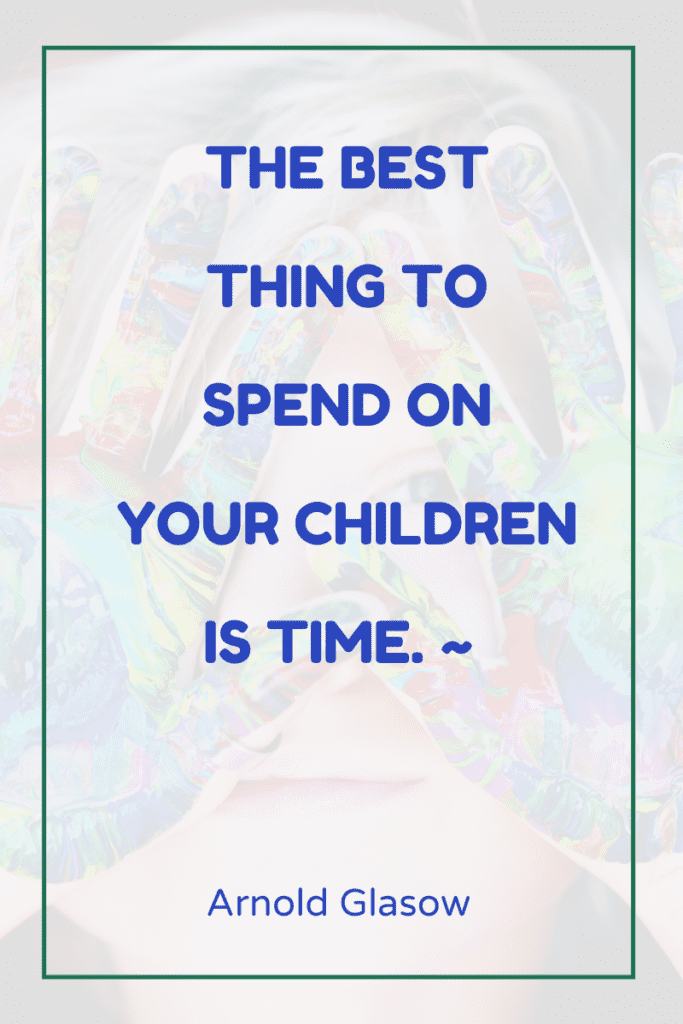Connecting with your child emotionally and otherwise can prove many times to be a daunting task, especially when kids are in their elementary years.
Couple this with our own personal issues as parents, time constraints, other responsibilities, etc and the distance between our children and us, at an emotional level, can keep deepening leaving a feeling of having an unfulfilled relationship with our kids.
How do we connect with our children and not feel disconnected from them?
You do it by dealing with any personal emotional barriers you as a parent or our kids have first. Then we focus on spending real time with our children. No distractions. No real time constraints. Just real interest in what you are doing together.
Before discussing ways to connect with your child, it’s important to look at what is causing the feeling of disconnect.
What habits, actions, or behavior patterns invoke this feeling?
Reasons we might feel disconnected from our children
1. Life stressors inhibit quality time
Life stressors can be anything from work, to everyday important errands and our own personal emotions. It can also be how we feel about ourselves.

If you are constantly stressed, overworked and tired, because you are trying to do it “all”, you can’t be the person you want to be for your child.
You might end up being short with them, or not being able to give them your full attention because you are so emotionally exhausted. You might realize this and start feeling sad, like a bad parent..like you just can’t “connect” with your child.
2. You don’t see them as equals
This doesn’t mean you don’t love your child or are a bad parent.
But it means perhaps you aren’t giving them the right attention.
You have to LISTEN to your child and respect them to get them to listen and respect you.
This means actually stopping and listening to what they are telling you. Adults many times treat young kids as if they don’t understand anything but baby language or threats of punishment.
While kids obviously understand things differently, it doesn’t mean we shouldn’t try and explain things around their world to them and listen to their own thoughts and feelings about what they experience.
If you don’t try to have an actual conversion with your child to invoke their thoughts and responses, you won’t fully understand who they are and feel disconnected.
Feeling connected to your child is about spending quality time, not about the quantity or the actual event. Validating and paying attention to what your child is telling you is quality interaction between you and your child and will help you feel connected.
3. Technology
Listen…sometimes we just have to throw that beautiful tv on, or hand them a tablet. It happens. Sometimes we need a break and at certain moments it is the only way to get that break, that is ok.
And we don’t want to hear about this “t.v. is bad nonsense” sometimes tv helps us keep our sanity with kids!
A little snack, a little netflix in exchange for some peace and quite? I’ll take it!
But when technology goes from an occasional tool or casual entertainment to consuming your household, it can lead to missing many opportunities to talk, bond, and grow as a family.
Make it a point that when you are trying to spend one on one time with your child, or children, the phone and all technology goes away. Put it away.
This is why people emphasize “dinner time” as family time.
It is not necessarily that dinner is a sacred time. It’s that with our busy lives, when we get to sit together with our families for dinner the time should be spent focusing on them and each other, and nothing else.
Now that we’ve gone over some reasons we might feel disconnected from our children, let’s delve into 6 effective ways to connect with them!
6 Effective Ways to Connect to your Child
1. Take care of yourself
You cannot take care of others if you don’t take care of yourself. Many times I would feel guilty going to the gym on my days off when my kids were home.
I felt and still sometimes feel I am missing out on “time with them”. The reality is, staying fit as a parent, as hard as it is, has undoubtedly made me a better parent.
And although it may be hard, it is very possible as we shared in our ways to stay fit as a parent post.
The physical, mental and emotional therapy daily exercise provides helps me be better emotionally for them.
Any parent who lives an active lifestyle knows how much of a better person and parent it makes them.
Taking care of yourself doesn’t mean put yourself first, it means don’t forget and leave yourself behind.
The best way to take care of yourself is through exercise and good eating habits.
Here is an awesome eating plan for busy parents just like you!
This is what we are about at Parenting & Dumbbells.
Helping parents find that balance between taking care of themselves and being the best parents they can be.
2. Spend Quality time with them, not quantity.
Playing the games your 5 or 6 year old want to play can be…well…not very exciting.
The point is to try and make it a point to do something together you both enjoy, or take sometime..even 15 minutes a day, to focus and really try to understand and appreciate something your child is into.  My son loves animals. He just loves learning about them, and loves books on animals.
My son loves animals. He just loves learning about them, and loves books on animals.
This is something I know will keep my interest so I make it a point to sit with him, engage with him, ask him questions, have him show me certain cool things about animals etc.
Just let him know and feel I really am into what he is showing and explaining to me.
Quality time can also involve a big event, or it can be a small errand like grocery shopping.
Whatever it is, just try and focus on your child, what they are telling you, showing you, and respond to them like you would respond to any important person in your life.
Small acts like this through the day will help you connect with your child in ways you didn’t think you could.
3. Ask them questions that require more than a yes or no answer
“How was school?”
“Did you have a good day?”
These questions will get your child to give you yes or no answers, but it stops there. Instead ask them questions that will get them talking and give you more insight into their day, feelings and thoughts.

Some examples can be:
- “What was the best part about school today?”
- “What was one thing about your day that you didn’t like?”
- “Did anyone do anything funny at school today?”
Another way to get them talking is to…. LET THEM.
Sometimes they might say something spontaneously, and if you don’t interrupt them they will keep going. You can encourage it by asking short handed questions about what they are telling you.
4. Find a hobby/activity you can do together
Recently my son picked up an old guitar I had laying around and took an interest in it. He was asking me how to play it and if I was able to play it.
I found this a great opportunity to pick up something I use to love doing, and learn it over again with him.
The hobby doesn’t have to be anything too time consuming, it can be as simple as collecting certain items, playing a sport, or even going for routine walks together.
5. Don’t just be there for the big moments
This can sometimes be prevalent among fathers.
Mothers by nature are primal caretakers. As young children, and even as adults, knowing our mothers are around is comforting.
This doesn’t mean, however, that both fathers and mothers shouldn’t be partaking in the day to day caretaking of their children.
It is not enough we go to their baseball games, recitals, or school events…it is important to be there daily for the little things. The bath, the bed time routine, changing diapers when they are young, taking them or picking them up from school when they are older. Watching after them when they are sick. Cooking for them.
I have found in particular that my son forms a strong attachment to me during the times I am there helping and taking care of him throughout the day. It forms a strong bond and a strong connection.
We can’t do this all the time as busy parents, but just being aware of it and trying to be involved in the little things makes a huge difference.
6. Know what is going on in their lives
Just like life events, moments, and stressors affect our own daily moods and judgement, the same can be said for kids.
Know what is going on in your child’d life whether they are 4 or 14.
Is anything at school bothering them?
- How are they doing academically?
- What does their school day actually look like?
- Who do they play with in the school yard?
- What do they think of their teacher?
- Are their health screenings up to date?
- Are they getting enough activity outside of school? Enough socialization?
Sometimes connecting with and understanding people, your child included, is about understanding life from their perspective.
In conclusion, to connect with our children we have be present in the moment. In THEIR moment. Really focusing solely on what they are trying to express and convey to you. If we do this daily, even for a few minutes a day, our connection with them will grow and stay strong.

